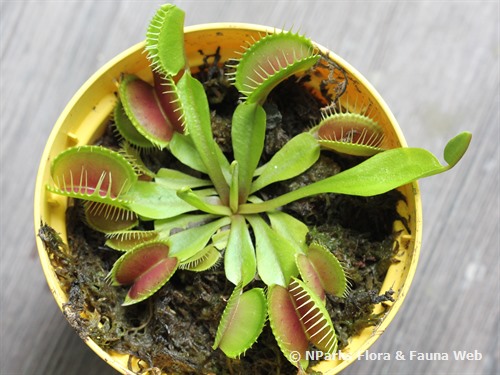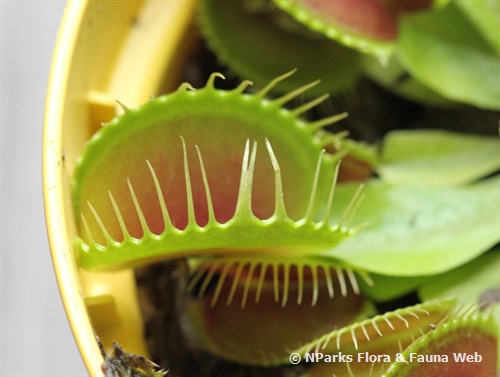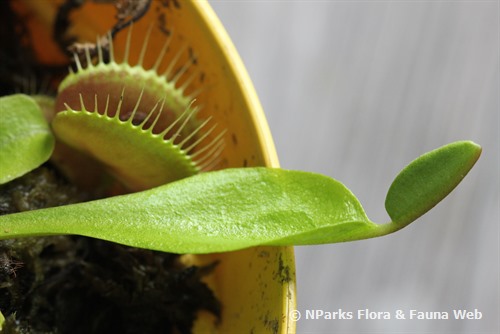
Name
Classifications and Characteristics
| Plant Growth Form | Herbaceous Plant |
|---|
Biogeography
| Native Distribution | USA |
|---|
Description and Ethnobotany
| Growth Form | Small, rosette-forming carnivorous plant up to 15 cm tall. |
|---|---|
| Foliage | The leaves are modified to trap insects in order to obtain nitrogen. The trap produces nectar to lure insects inside. Once the insect is inside, its movement bends the trap's trigger hairs and signals the trap to close. A trap can close about 10 times and re-open the next day if the trap is empty. Digestion of prey takes about 3-5 days, after which the trap re-opens and releases the indigestible wings and exoskeleton. A trap that successfully captures prey each time will only re-open about 3 times. |
| Habitat | Although once found throughout southeastern USA, they are now found mainly in isolated areas of North Carolina and South Carolina. They occur in open, sunny areas of savannas with moist, sandy, nutrient poor soil. |
| Associated Fauna | They are often found in the large, open areas between longleaf pines and occur with other low-growing plants. |
Plant Care and Propagation
| Light Preference | Full Sun |
|---|---|
| Water Preference | Lots of Water |
Image Repository
Others
| Master ID | 32888 |
|---|---|
| Species ID | 7302 |
| Flora Disclaimer | The information in this website has been compiled from reliable sources, such as reference works on medicinal plants. It is not a substitute for medical advice or treatment and NParks does not purport to provide any medical advice. Readers should always consult his/her physician before using or consuming a plant for medicinal purposes. |


